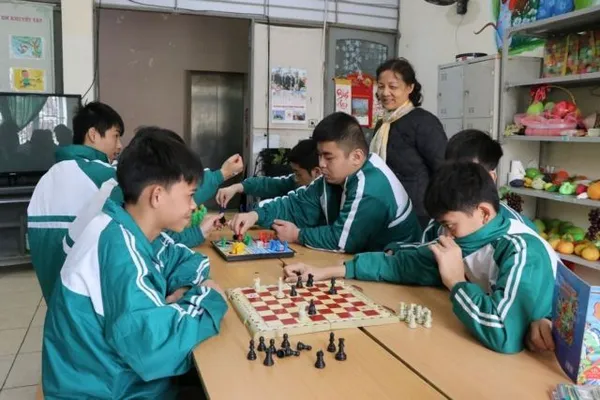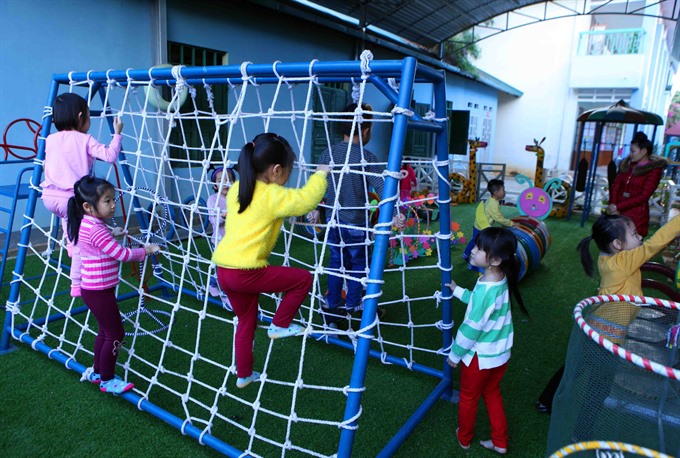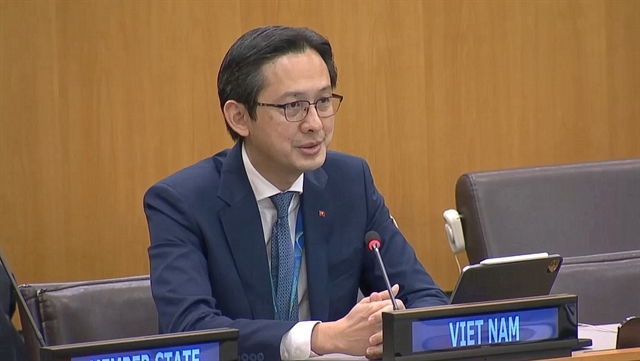 Society
Society

Public concern is once again inspiring changes to education programmes in schools, with calls for more sex education to be included in the curriculum so that children can better protect themselves from sexual abuse.
 |
| The Họa Mi kindergarten in Mường La District of the northern mountainous province of Sơn La. Calls are growing for more sex education to be included in school curricula so that children can better protect themselves from sexual abuse. — VNA/VNS Photo Quý Trung |
HÀ NỘI — Public concern is once again inspiring changes to education programmes in schools, with calls for more sex education to be included in the curriculum so that children can better protect themselves from sexual abuse.
Recent reports of children being sexually abused in different parts of the country have highlighted the growing problem.
The Ministry of Labour, Invalids and Social Affairs (MoLISA) estimates that around 2,000 Vietnamese children face violence and abuse annually, of whom 1,200 suffer sexual abuse. Among these, more than 13 per cent are girls under the age of six.
But the real number of Vietnamese children being sexually abused may be much higher, said MoLISA deputy minister Đào Hồng Lan.
Education experts have criticised the fact that children in Việt Nam learn about sex education too late, which makes them more vulnerable to abuse.
Dr Vũ Thu Hương from the Primary Education Department under Hà Nội National University of Education said that under the current education programmes, children begin sex education in fifth grade.
“It’s too late nowadays, as many children start puberty early. They experience puberty before being taught about sex education, which is supposed to provide them with the understanding and skills to deal with major physical and mental changes they will experience during puberty,” she said.
Moreover, sex education in schools is inadequate. Current topics include the reproductive cycle and the formation of the human body, as well as advice on raising children.
Sex education must include information on ejaculation, spermatorrhoea, masturbation, gender identity and especially advice on how children can protect themselves from and respond to sexual abuse, Hương said.
Many parents and adults usually avoid awkward questions about sex from kids, which may lead children to consider such topics taboo. Ultimately, children facing problems may remain silent instead of alerting others.
“Sex education must be made available for children aged three to 16, covering a range of complicated subjects depending on the age of the child,” she said, adding that adequate education could help children recognise threats of sexual abuse and be able to inform parents as soon as they feel they are in an uncomfortable situation.
Lecturer Phạm Thành Nam from the University of Education under Hà Nội National University, said that in school, children are taught about the reproductive system rather than a healthy attitude to sex.
From the age of three, children begin to ‘explore’ their bodies, and this is the time for families and teachers to provide them with information so that children can form a healthy understanding about sex, which will in turn help protect them from abuse.
Learn more at school
Lê Thị Lan Anh, head of Hà Nội-based Institute for Research on Educational Development, said that sex education was normally taught in biology class and teachers had not received proper training, Kinh tế & Đô thị (Economic and Urban Affairs) newspaper reported on Friday.
Teachers often felt ashamed or embarrassed when talking to children about sex. The curriculum was disjointed, resulting in children failing to understand why a boy’s voice breaks or girls menstruate.
Ngô Thị Thanh, principal of Nam Từ Liêm Primary School in Hà Nội said that in her school sex education was integrated in classes on morality, life skills or extra-curricular activities.
The school organised outdoor activities and invited healthcare workers to talk to fourth and fifth graders about sex education.
Tạ Ngọc Trí, vice head of the Primary Education Department under the Ministry of Education and Training, said that sex education was regulated as part of extra-curricular activities at schools from primary to high schools.
In 2014, the ministry issued a circular on life skills education which also included sex education and encouraged schools to develop child abuse prevention programmes.
Professor Nguyễn Minh Thuyết, chief editor of the National Education Programme said that the new programme would pay more attention to sex education.
Sex education could be directly taught in biology class, legal knowledge or integrated into literature classes.
“To protect children from child abuse, teaching sex education at schools is not enough,” Thuyết said, emphasing the role of the family. In many cases, children suffered abuse from family members.
While waiting for the new education programme to be implemented next year, schools agree that teachers should receive more training on sex education. — VNS




